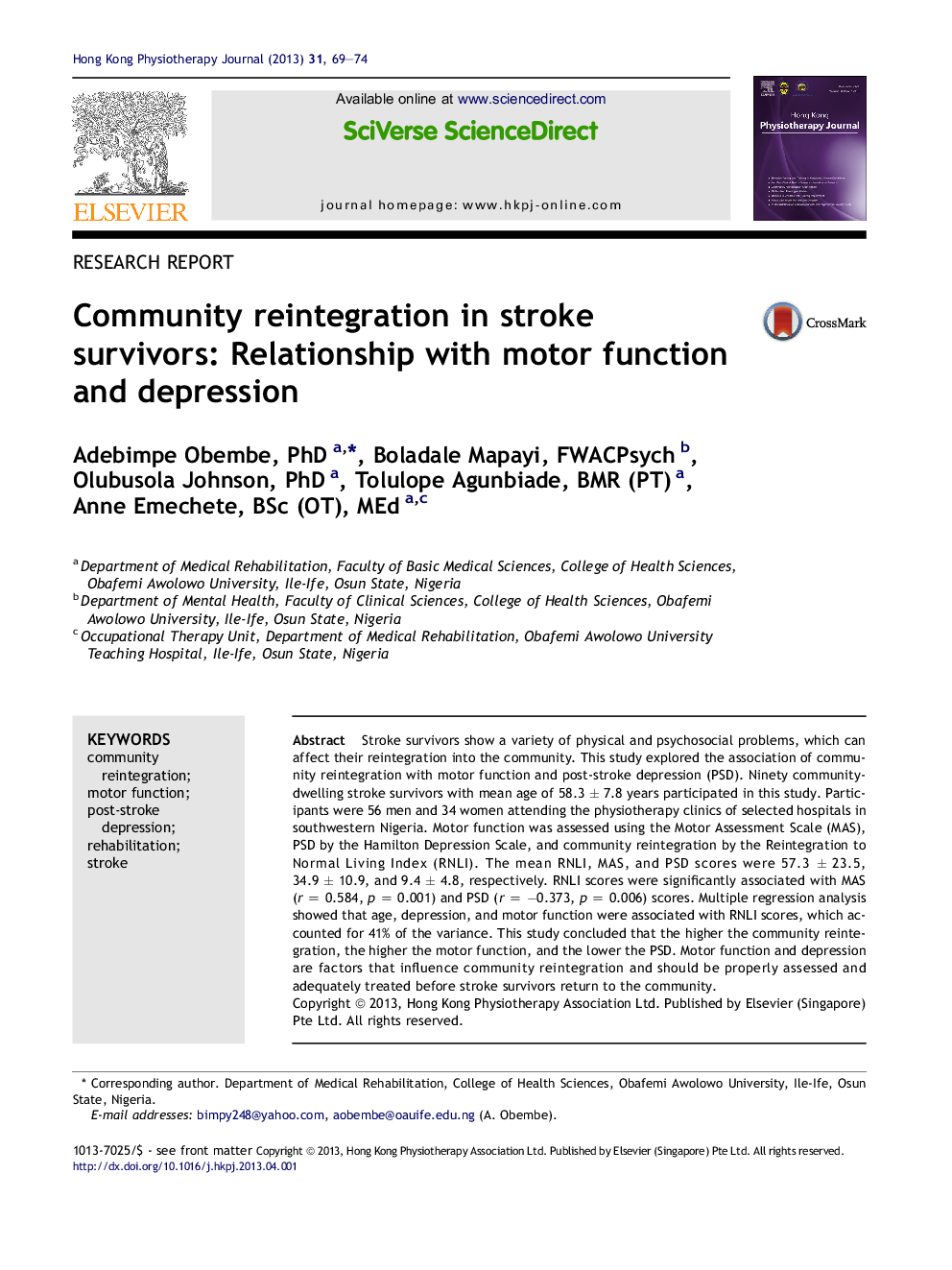| Article ID | Journal | Published Year | Pages | File Type |
|---|---|---|---|---|
| 2618344 | Hong Kong Physiotherapy Journal | 2013 | 6 Pages |
Stroke survivors show a variety of physical and psychosocial problems, which can affect their reintegration into the community. This study explored the association of community reintegration with motor function and post-stroke depression (PSD). Ninety community-dwelling stroke survivors with mean age of 58.3 ± 7.8 years participated in this study. Participants were 56 men and 34 women attending the physiotherapy clinics of selected hospitals in southwestern Nigeria. Motor function was assessed using the Motor Assessment Scale (MAS), PSD by the Hamilton Depression Scale, and community reintegration by the Reintegration to Normal Living Index (RNLI). The mean RNLI, MAS, and PSD scores were 57.3 ± 23.5, 34.9 ± 10.9, and 9.4 ± 4.8, respectively. RNLI scores were significantly associated with MAS (r = 0.584, p = 0.001) and PSD (r = −0.373, p = 0.006) scores. Multiple regression analysis showed that age, depression, and motor function were associated with RNLI scores, which accounted for 41% of the variance. This study concluded that the higher the community reintegration, the higher the motor function, and the lower the PSD. Motor function and depression are factors that influence community reintegration and should be properly assessed and adequately treated before stroke survivors return to the community.
